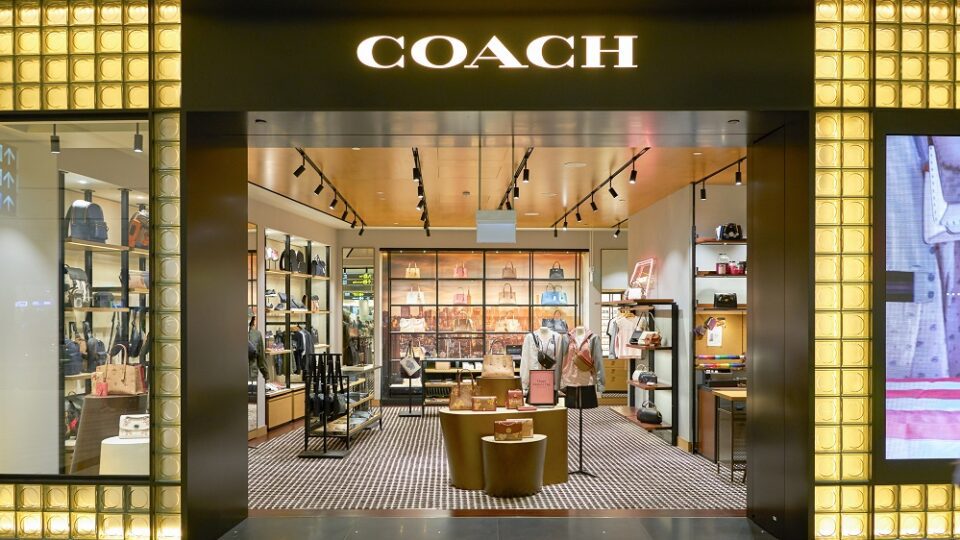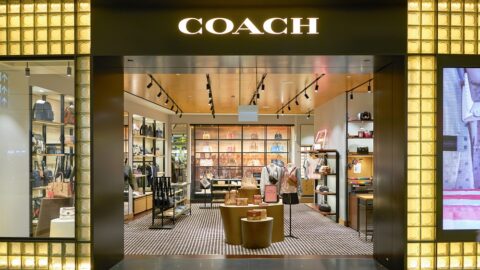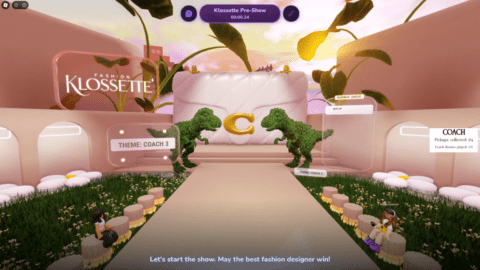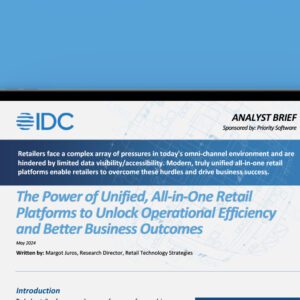Despite rumblings of a spending slowdown in the luxury market, Tapestry announced a record fiscal Q1, which ended Sept. 30, 2023. The luxury house consisting of Coach, Kate Spade and Stuart Weitzman reported revenue of more than $1.5 billion for the quarter, representing year-over-year growth of approximately 2%.
Across its portfolio, Coach was the clear winner. The brand has acquired a newfound relevance among Gen Z and millennials that has helped the company achieve a 5% year-over-year net revenue increase, while Kate Spade and Stuart Weitzman both saw losses over the same period. In addition to reaching $1.16 billion in revenue, Coach also saw a 75% margin, or $868 million in gross profit. In contrast, Kate Spade and Stuart Weitzman saw $199 million and $31 million in gross profit respectively.
Despite these varied results, Tapestry’s gross profit and gross margin also both improved year over year, reaching $1.10 billion and 72.5% respectively. These increases were driven by lower freight expenses and operational improvements. Overall cash flow from operating activities recorded an inflow of $75 million, compared to an outflow of $170 million in the year prior. Ending inventory also decreased year-over-year, from $1.14 billion to $943 million.
A Focus on Strategic Growth Pillars
The company attributed its success this quarter to its strategic focus on areas including:
Advertisement
- Building lasting customer relationships: Tapestry’s family of brands acquired more than 1.2 million new customers in the U.S., half of which were Gen Z and millennials;
- Powering global growth: International revenue grew 7% at constant currency levels, largely due to substantial gains in Japan (12%) and Greater China (9%). Tapestry reported that despite economic headwinds in the U.S., revenue was in-line with the year prior;
- Improving omnichannel experiences: Digital represented 25% of Tapestry’s total revenue, which was in line with the same time last year. Direct-to-consumer (DTC) sales increased by 1%; and
- Fueling fashion innovation and product excellence: New product releases and brand launches “outperformed and fueled handbag average unit retail gains globally,” the company reported. Inventory levels for the quarter were 17% below the prior year, which Tapestry attributed to “disciplined inventory management and a lower level of in-transits relative to last year.”
“As we move forward, we are in a position of strength with meaningful runway for sustainable growth,” said CEO Joanne Crevoiserat in a statement. “Through a relentless drive to fuel brand magic and deliver for our customers, we are confident in our ability to achieve organic top and bottom-line gains, supported by our data-driven, direct-to-consumer operating model that enables speed and agility.”
Capri Holdings Limited Acquisition Moves Forward
Tapestry’s impact and influence in the luxury sector will further expand with its acquisition of Capri Holdings Limited, which is still in progress. Tapestry noted that this purchase will help the company diversify its consumer segments, geographies and product categories while helping it bolster its DTC business.
The initial acquisition announcement was made on Aug. 10, 2023, and Capri Holdings Limited shareholders have since approved the transaction.
Tapestry is currently “working to receive all required regulatory approvals, including responding to the U.S. Federal Trade Commission’s second request received on November 3, 2023,” the company reported. The purchase will be funded via a combination of permanent financing, term loans, excess Tapestry cash and anticipated future cash flow. The deal is expected to close in 2024, and integration plans already are being made.













